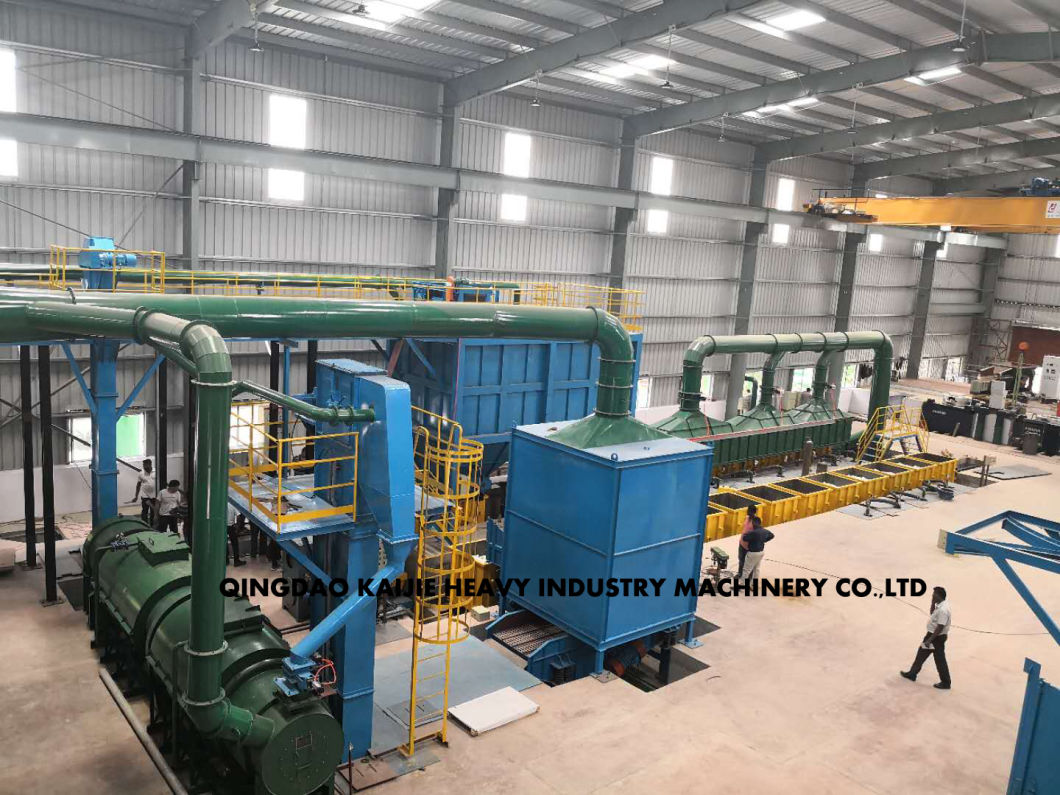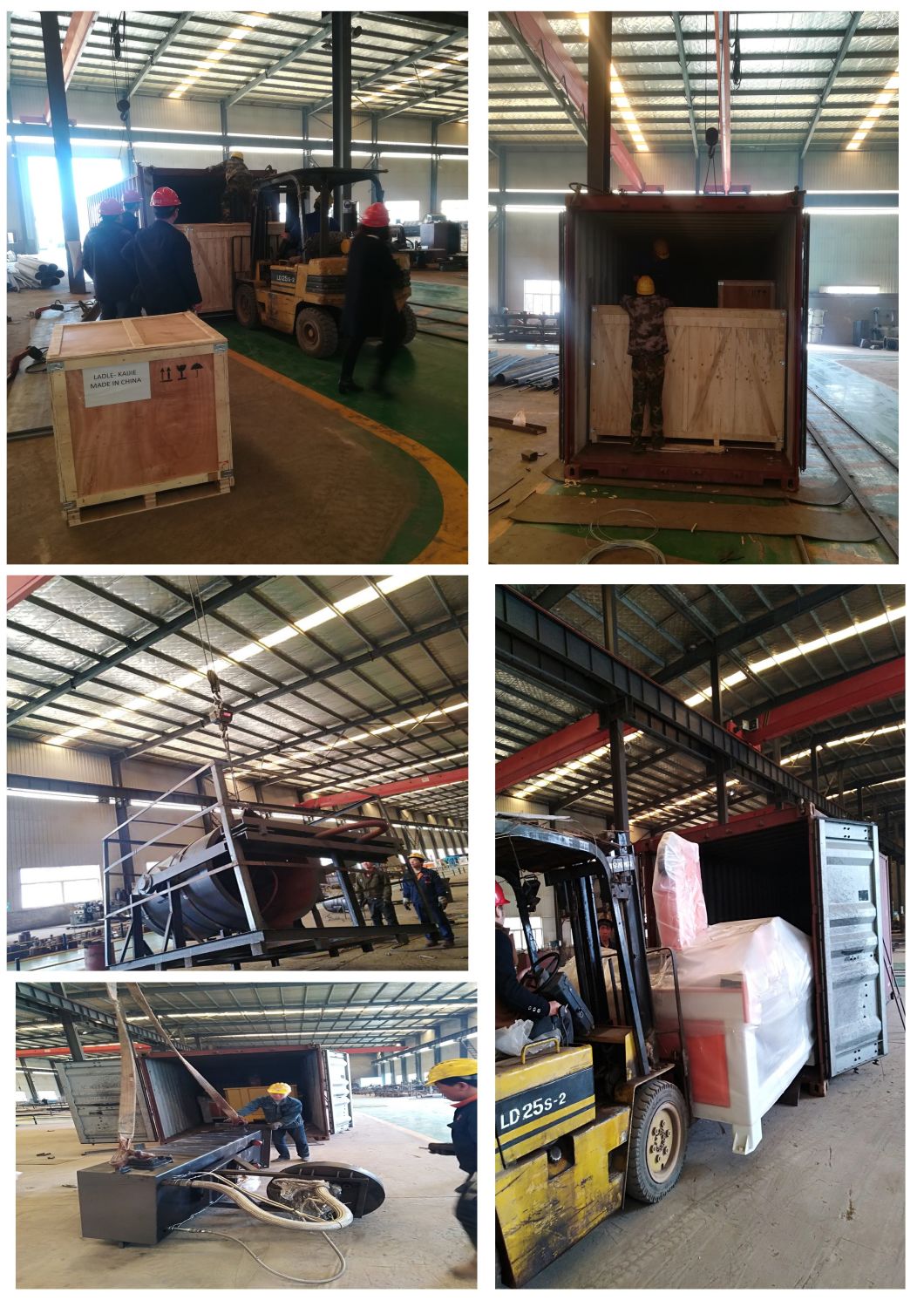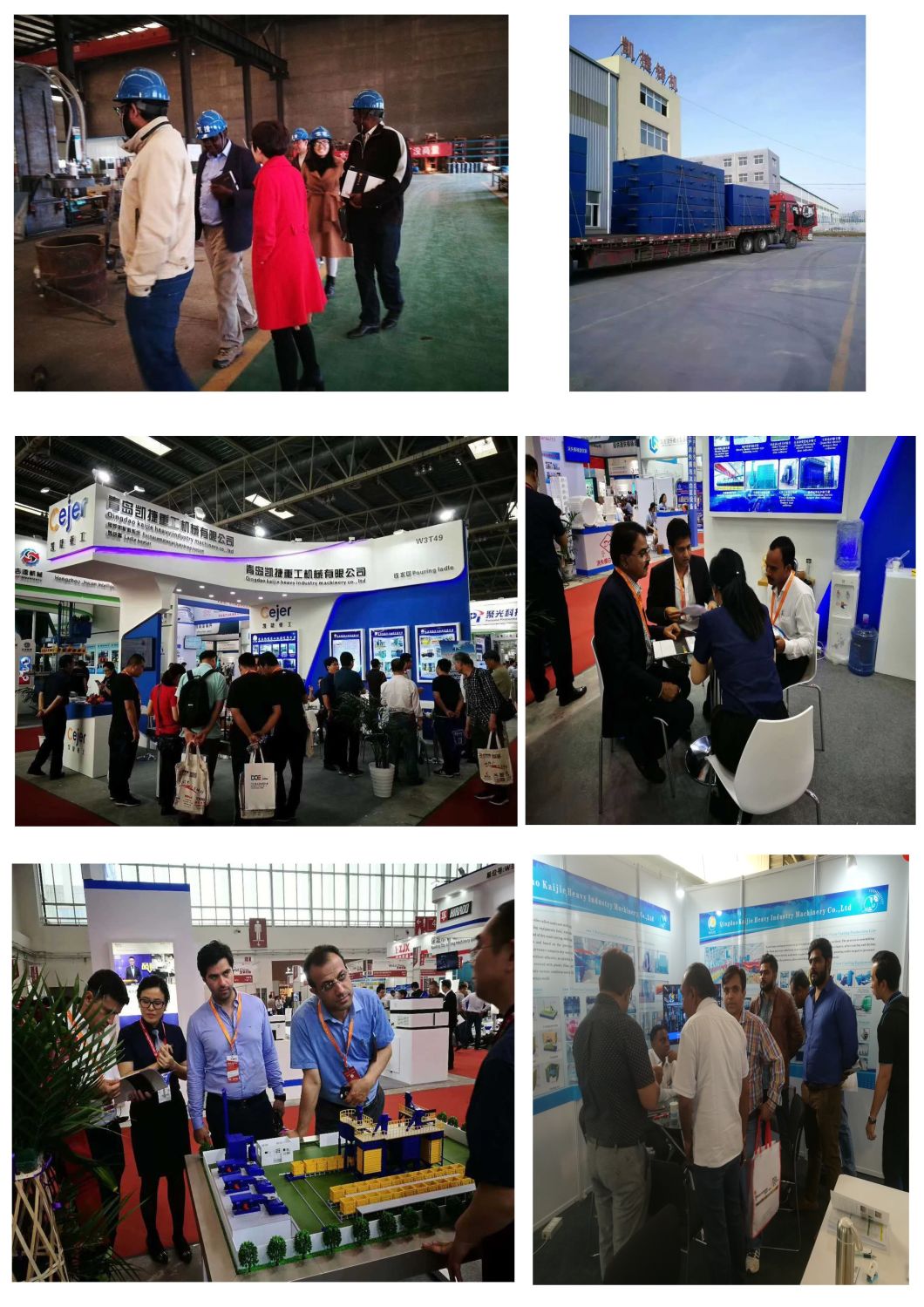Product Description
Introduction
The lost foam casting equipment was first introduced in 1958 when H.F. Shroyer patented a cavity-less casting method using polystyrene foam patterns embedded in traditional green sand. As molten metal is poured into the mold, the foam pattern is decomposed, and the metal replaces it exactly, replicating all features of the original pattern. This process requires a unique pattern for each casting, as the foam is evaporated during the process.
Process Steps
1. Mold foam pattern sections.
2. Age the pattern to allow dimensional shrinkage.
3. Assemble if it's a multi-piece pattern.
4. Build clusters with multiple patterns.
5. Coat the cluster.
6. Dry the coating.
7. Compact the cluster in a flask.
8. Pour the metal.
9. Extract the cluster from the flask.


Black area – Sand preparation and molding system
1. Manipulator
2. Winnowing magnetic separators
3. Sanded-up equipment
4. Vibrating conveying screen classifier
5. Chain elevator
6. Water-cooled sand cooling equipment
7. Tri-dimensional vibrating table
8. Vacuum system
9. Dust collector
White area – Foam mold production
1. Batch-type pre-foaming machine
2. Vertical type mold forming machine
3. Bonding machine
4. Coating stirring mill
5. Hot gas far infra-red drying oven
Advantages and Disadvantages
Lost foam casting is ideal for complex castings that would typically require cores. It offers high dimensional accuracy, excellent surface finish, no draft or parting lines, and no flash formation. The un-bonded sand system is easier to maintain compared to green or resin-bonded sands. This process is more cost-effective than investment casting due to fewer steps involved. Risers are often unnecessary because the molten metal vaporizes the foam, allowing natural directional solidification. Foam is easy to shape, carve, and glue, offering flexibility that can consolidate parts into one component, reducing assembly needs. However, the main disadvantages include high pattern costs for low-volume applications and the fragility of foam patterns, which can be easily damaged or distorted. Using a die for pattern production also involves a large initial investment.
Detailed Images
Semi-Automatic Pre-foaming Machine for material pre-expanding
Semi-Automatic Molding Machine
Coating Blender Machine
3D-Vibration Table
Lost Foam Box Turnover Machine
Lost Foam Black Area Molding
Horizontal Sand Cooling
Lost Foam Whole Line
Packing & Delivery
Qingdao Kaijie Heavy Industry Machinery Co., Ltd is located in the beautiful coastal city of Qingdao, Jiaozuo. Our factory spans 22,000 square meters, with a construction area of 10,000 square meters. We have a registered capital of RMB 20 million and over 110 employees, including more than 30 technical professionals. Our annual production value reaches up to 60 million yuan. Through hard work and innovation, we have become a leading company in China's casting equipment industry. We specialize in producing V-method production lines, lost foam production lines, foundry ladles, ladle heaters, dust removal systems, electric flat cars, cupola furnaces, and furnace batching feeding systems.

Catalyst Tube,Reformer Tube,Steam Reforming Tube,Centrifugal Casting Reformer Tube
Tuopu Industry(Jiangsu) Co., Ltd. , https://www.tuopu-industry.com